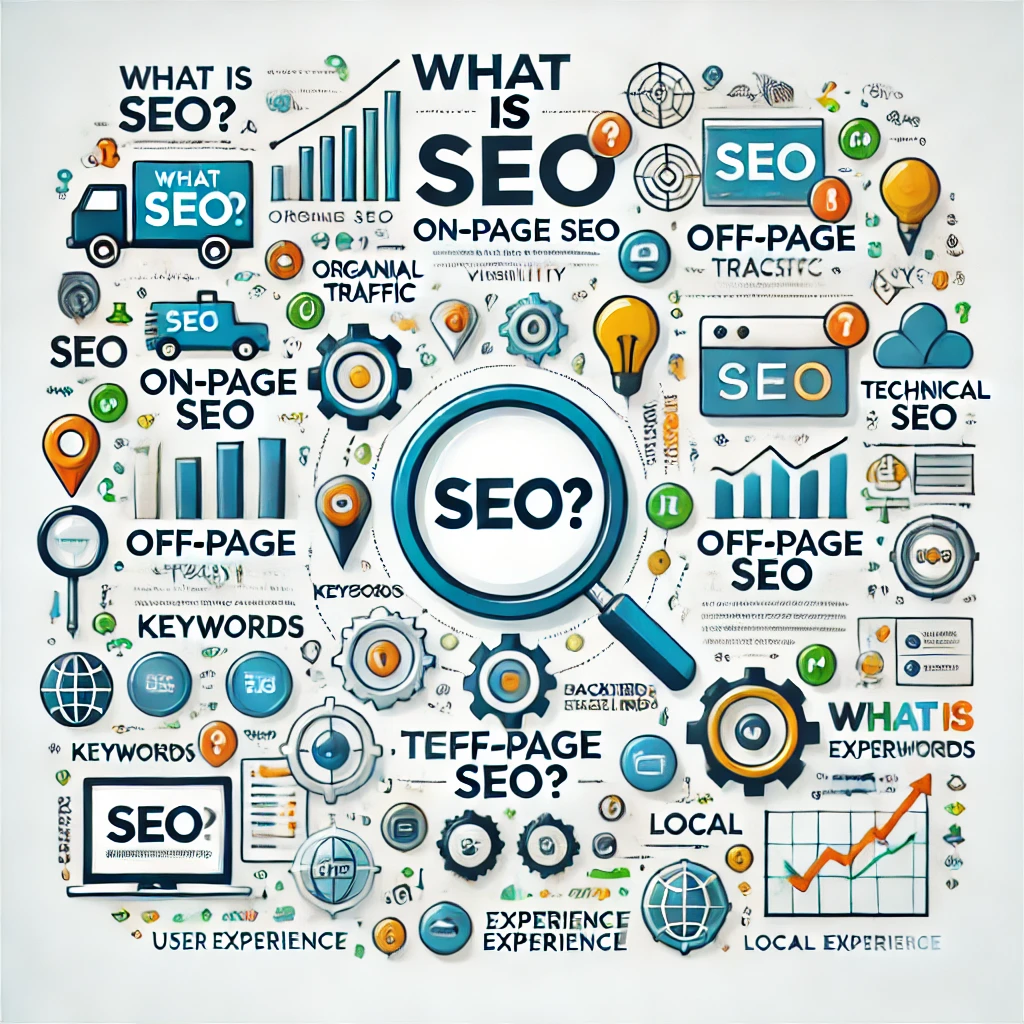
SEO (Search Engine Optimization) is the process of enhancing a website or online content to improve its visibility on search engine results pages (SERPs). The primary objective is to attract organic (non-paid) traffic by ensuring the website ranks higher for specific keywords or phrases that users commonly search for. It is a critical component of digital marketing, as it helps businesses reach their target audience effectively and without relying solely on paid advertising.
Search engines like Google, Bing, and Yahoo use complex algorithms to determine which websites or pages should appear at the top of the search results. SEO focuses on optimizing various factors to align with these algorithms and improve a website’s ranking.
Key Components of SEO
- On-Page S E O
This involves optimizing elements on your website to make it search-engine-friendly. Key aspects include using relevant keywords, writing compelling title tags and meta descriptions, structuring headers properly, and creating high-quality, valuable content that answers user queries. - Off-Page S E O
Off-page SEO focuses on building your website’s authority through external factors like backlinks from reputable websites, social media promotion, and influencer outreach. These signals show search engines that your website is credible and valuable to users. - Technical S E O
Technical SEO addresses backend optimizations, such as improving site speed, ensuring mobile-friendliness, creating XML sitemaps, and fixing crawl errors. These elements ensure search engines can effectively crawl and index your website. - Local S E O
For businesses with a local presence, optimizing for local search is vital. This includes managing your Google My Business profile, using location-specific keywords, and ensuring your contact details are consistent across all platforms.
Why Is SEO Important?
SEO is crucial for improving online visibility and driving targeted traffic. Unlike paid ads, SEO focuses on organic traffic, which is sustainable and cost-effective in the long run. Additionally, higher search rankings build trust and credibility with users, as they often perceive top-ranking websites as more reliable and authoritative.
By focusing on user intent and creating a seamless experience, SEO not only helps improve search engine rankings but also contributes to better user engagement, longer session durations, and higher conversion rates. For businesses aiming to thrive in the digital age, investing in SEO is no longer optional—it is a necessity.
Mastering SEO requires a combination of technical knowledge, strategic planning, and ongoing adaptation to evolving search engine algorithms.
Tags: What is SEO?